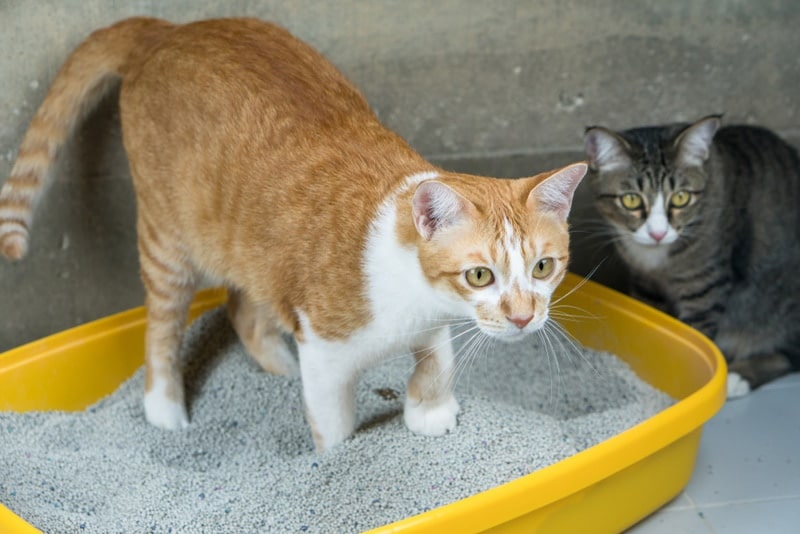
A Quick Comparison of Our Favorites in 2024
| Image | Product | Details | ||
|---|---|---|---|---|
| Best Overall |
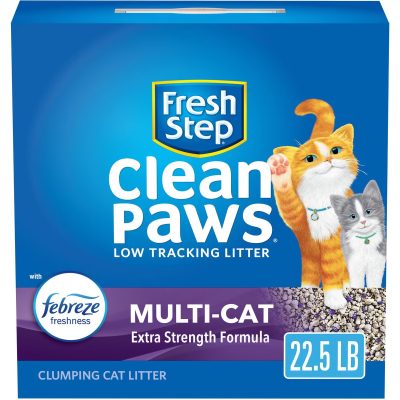
|
Fresh Step Clean Paws Multi-Cat Scented Clumping Clay Cat Litter |
|
CHECK PRICE |
| Best Value |
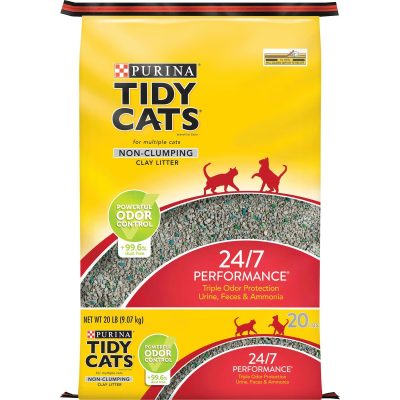
|
Tidy Cats 24/7 Performance Scented Non-clumping Clay Cat Litter |
|
CHECK PRICE |
| Premium Choice |

|
PetSafe ScoopFree Complete Disposable Non-clumping Crystal Litter Tray |
|
CHECK PRICE |
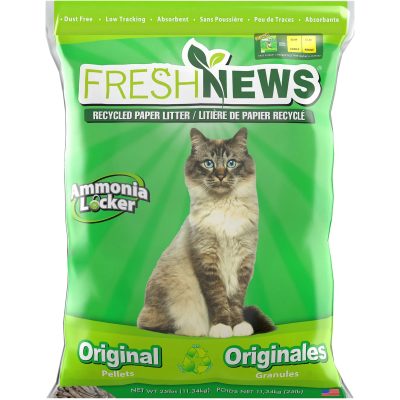
|
Fresh News Unscented Non-clumping Paper Cat Litter |
|
CHECK PRICE | |
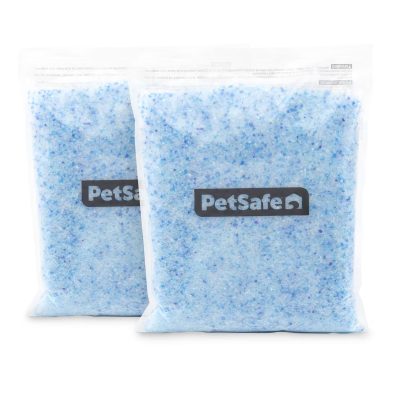
|
PetSafe ScoopFree Premium Crystal Litter |
|
CHECK PRICE |
The 7 Best Non-Tracking Cat Litters
1. Fresh Step Clean Paws Multi-Cat Scented Clumping Clay Cat Litter – Best Overall
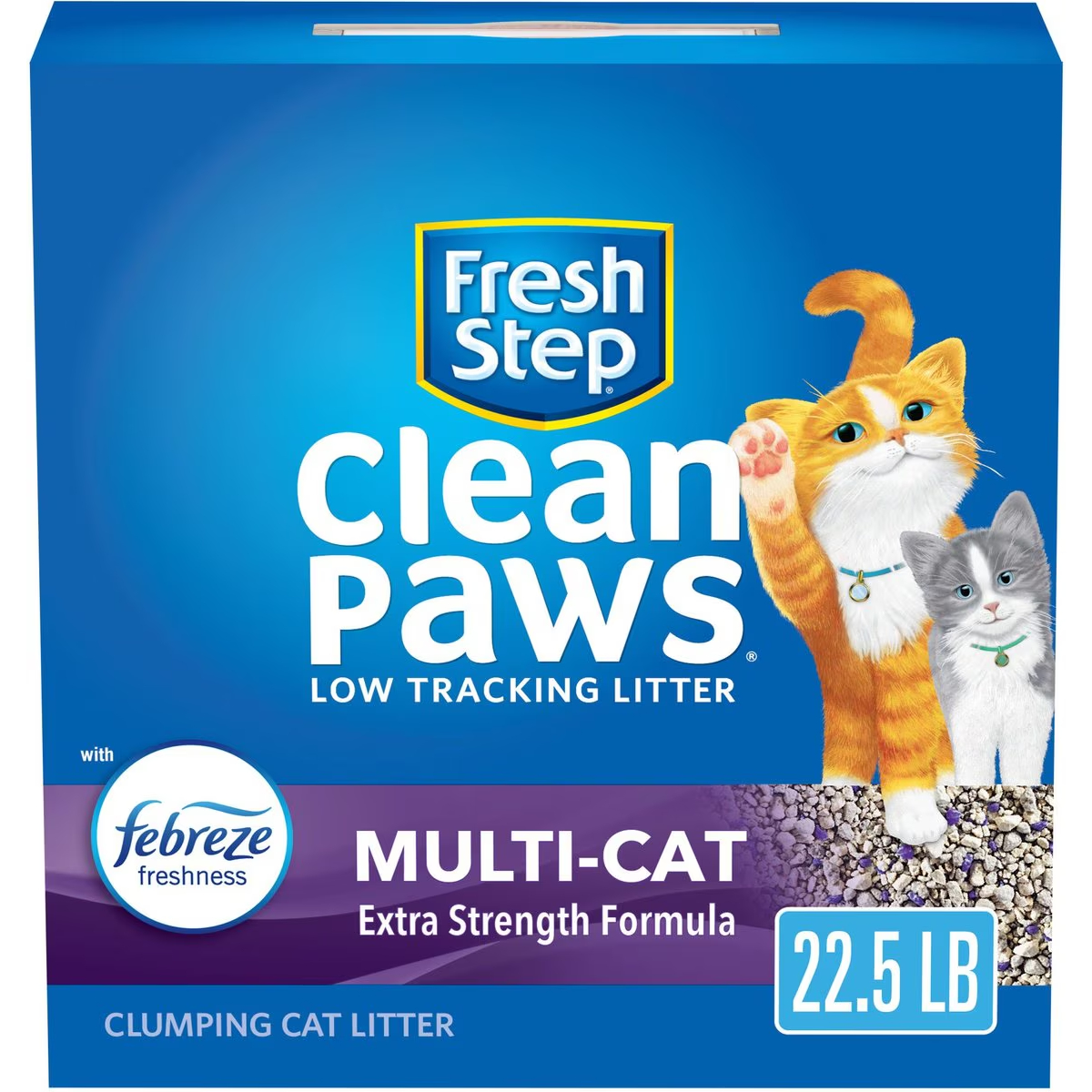
| Type: | Clumping clay |
Fresh Step Clean Paws Multi-Cat Scented Clumping Clay Cat Litter is our pick as the best overall non-tracking cat litter. It has ammonia-block technology that helps trap and eliminate bacteria and odors for up to 10 days, and the formula is 99.9% dust-free. The size and shape of the particles keep them in the box and prevent them from getting stuck to your cat’s feet.
The only downside about Fresh Step Clean Paws is that many customers complain that the clumps dry so hard, that they are challenging to remove from the litterbox.
- Ammonia-block technology
- 9% dust free
- Unique size and shape
- Hard clumps
2. Tidy Cats 24/7 Performance Scented Non-clumping Clay Cat Litter — Best Value
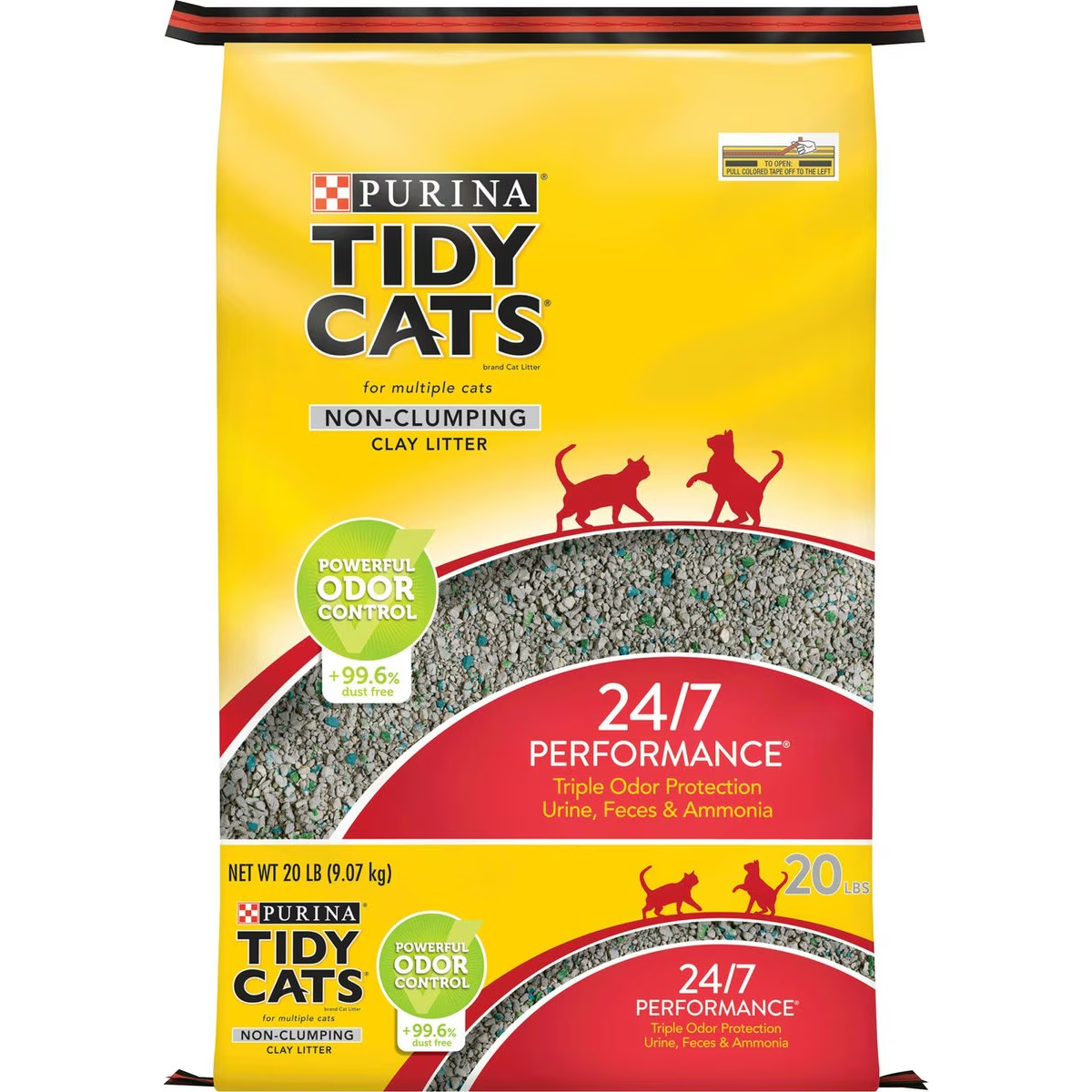
| Type: | Non-clumping clay |
Tidy Cats 24/7 Performance Scented Non-clumping Clay Cat Litter is our pick as the best non-tracking cat litter for the money. There is little dust, so your cats won’t track it around the house, and it has an extended-release deodorizing system that helps keep the litter box smelling clean and fresh. It’s a great choice when you have multiple cats, and the non-clumping formula is easy to clean up. It’s also one of the most inexpensive litters on this list.
The downside with Tidy Cats 24/7 Performance is that many customers complain that it doesn’t cover up the scent well nor absorb much moisture, so you have to clean the litter box more frequently.
- No dust
- Easy to clean
- Inexpensive
- Doesn’t cover odors
- Doesn’t absorb much moisture
3. PetSafe ScoopFree Complete Disposable Non-clumping Crystal Litter Trays — Premium Choice

| Type: | Silica gel crystals |
PetSafe ScoopFree Complete Disposable Non-clumping Crystal Litter Trays is our premium choice pick for non-tracking cat litter. It uses silica gel crystals, which contain no dust and can’t be tracked around the house, and they are non-toxic and safe for people and animals. Unlike most litter that you need to pour and scoop, this brand uses disposable trays lasting up to 30 days. There’s also a plastic tray liner that helps protect against leaks, and it works with both the Scoop Free Ultra Self Cleaning Cat Litter box and the Scoop Free Original Self Cleaning Cat Litter box.
The downside to this option is that it’s extremely expensive, and you will need one of the brand’s self-cleaning litter boxes to use it. Some customers also complained that it didn’t work as well as they thought.
- No dust
- Non-toxic
- No scooping
- Plastic tray liner
- Expensive
- Requires a self-cleaning machine
4. Fresh News Unscented Non-clumping Paper Cat Litter
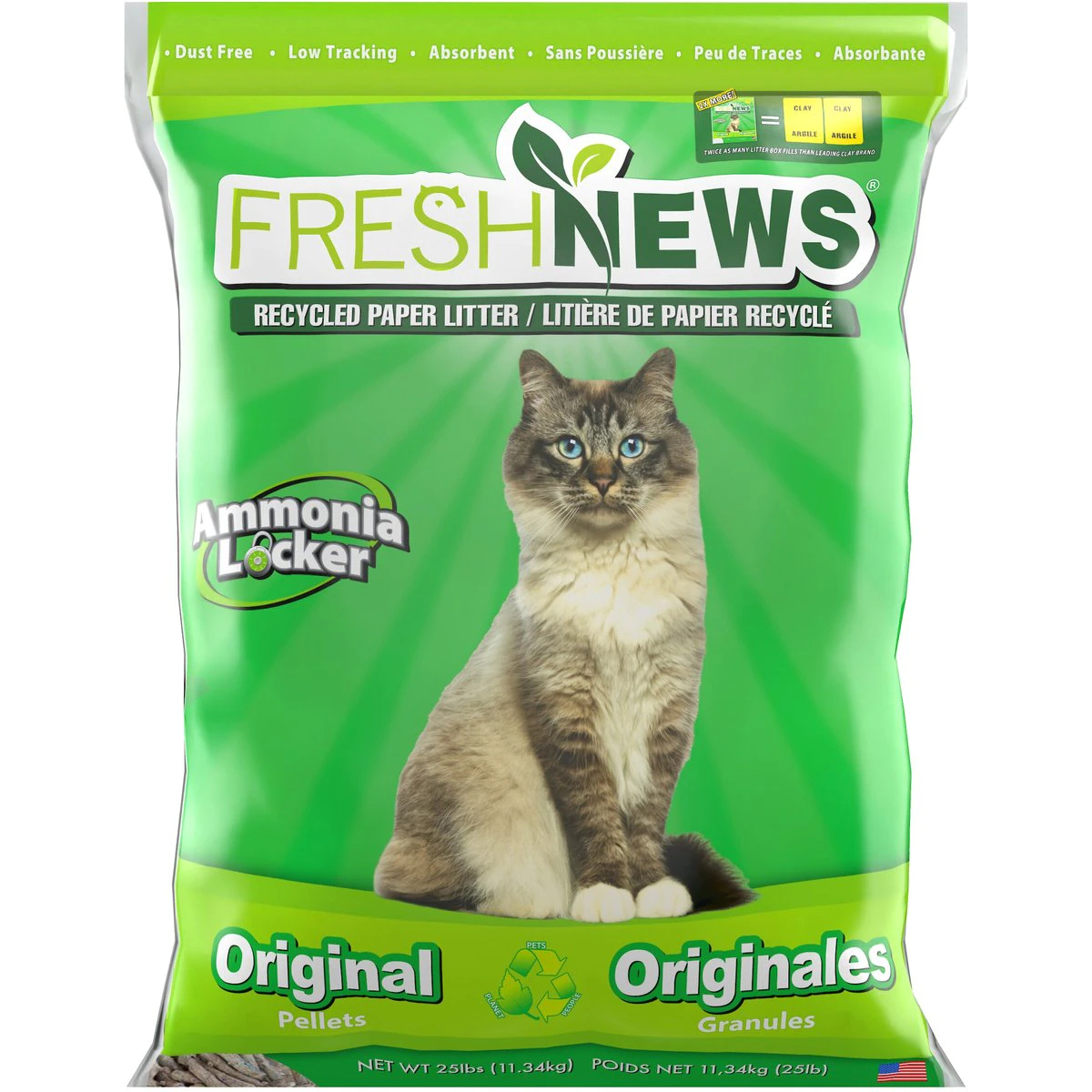
| Type: | Recycled paper |
Fresh News Unscented Non-clumping Paper Cat Litter is our pick as the best non-tracking cat litter for kittens. It contains no fragrances and uses 100% recycled paper to create environmentally friendly pellets. There is no dust, and it’s low tracking, so it won’t get around your home. It’s also non-allergenic and three times more absorbent than clay. Fresh News contains baking soda to help neutralize any odors, and the moisture-absorbing pellets retain their shape as they grow larger, so it’s easy to see where you need to clean.
The downside to Fresh News is that many customers complain that baking soda isn’t enough to control odor.
- No dust
- Environmentally friendly
- More absorbent than clay
- Easy to clean
- Doesn’t mask odors well
5. PetSafe ScoopFree Premium Crystal Litter
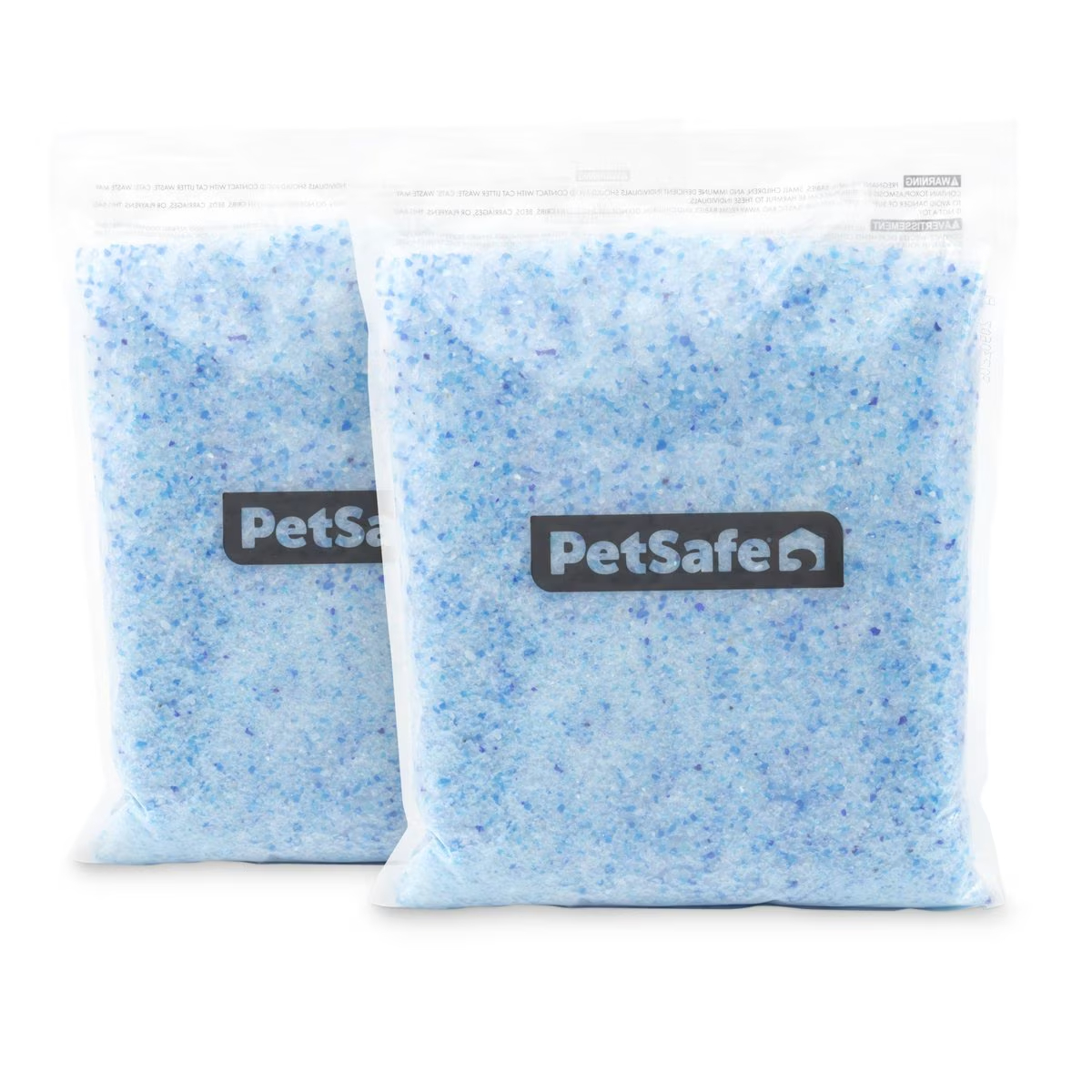
| Type: | Silica gel |
PetSafe ScoopFree Premium Crystal Litter is similar to our premium choice but does not require the expensive self-cleaning litter box to use, though you can use it with that product. It’s non-toxic and five times more absorbent than clay. There is no dust, and it won’t stick to your cat’s feet, so they are less likely to track it around your home. We also like the fact that the pre-portioned bags arrive ready to use.
The downside to PetSafe ScoopFree Premium is that it’s quite expensive, especially when compared to clay litter, and some cats may resist using it.
- No dust
- Non-toxic
- Pre-portioned bags
- Expensive
- Some cats may not like it
6. Frisco Pine Pellet Unscented Non-clumping Wood Cat Litter
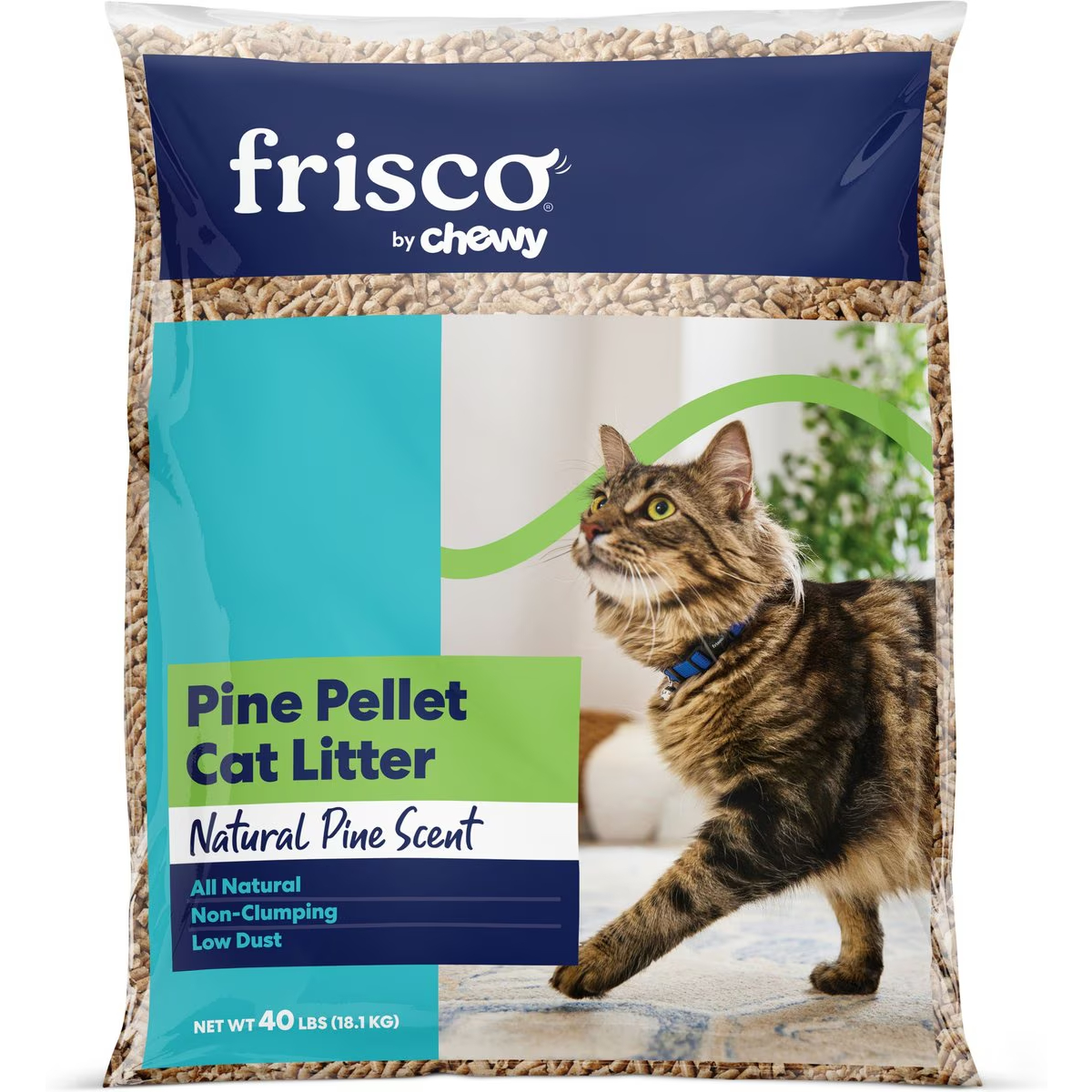
| Type: | Wood pellets |
Frisco Pine Pellet Unscented Non-clumping Wood Cat Litter is an all-natural cat litter made with 100% pine wood that contains no added chemicals or fragrances. The pellets can absorb three times their weight in liquid to help keep the litter box smelling fresh, and they won’t stick to your cat’s feet, so they won’t be tracked around the house. The natural pine fragrance helps mask odors, and it’s a good choice for sensitive cats that might have problems with dust or perfume.
The cons of this litter are that there is no odor control besides its ability to absorb moisture, and many customers complain that the pellets turn into dust after your cat pees on them, making the litter box hard to clean.
- All-natural
- Absorb three times their weight in liquid
- Natural pine fragrance
- Hard to clean
- No odor control
7. Naturally Fresh Pellet Unscented Non-clumping Walnut Cat Litter
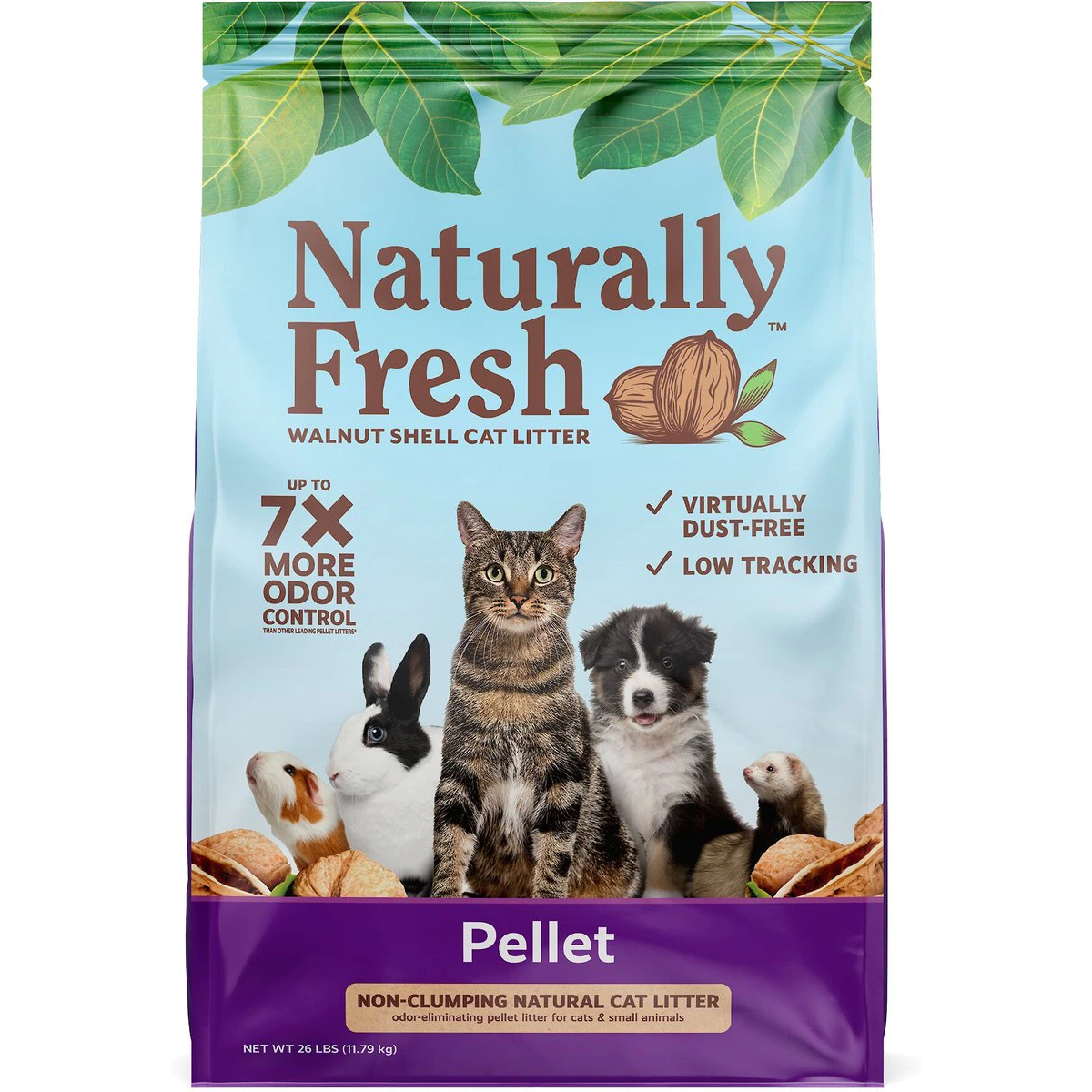
| Type: | Walnut shells |
Naturally Fresh Pellet Unscented Non-clumping Walnut Cat Litter is a natural cat litter that uses crushed walnut shells to create pellets. Walnut shells do a great job of neutralizing odors and are more effective than clay, pine, corn, and wheat. There is no dust, so it helps reduce tracking and is less likely to bother pets sensitive to dust. The pellets absorb moisture quickly and are easy to clean from the litter box.
The cons of Naturally Fresh Litter are that many customers complain that you need to replace it more often than other types, it doesn’t control order well if more than one cat uses the box, and some cats won’t like to use it.
- Natural ingredients
- Neutralizes odors better than pine
- Dust free
- Absorbs quickly
- Frequently needs replacing
- Some cats won’t like it
Buyer’s Guide: Finding the Best Non-Tracking Litter
Pellet Size and Shape
The size and shape of the pellets in your litter box will greatly impact how much gets tracked around your home. In most cases, large and heavy litter is not likely to stick to your pet’s feet, so it will stay in the tray. However, many claim that litter with a sand-like texture works well too. We recommend trying one of the large litters first, but you may want to experiment to find what works best for your cat.
Clumping Ability
For clay litter, clumping tends to work better than non-clumping to keep tracking down because the large clumps are less likely to stick to your cat’s feet. Clumping litter is also usually easier to clean out of the box than most other types.
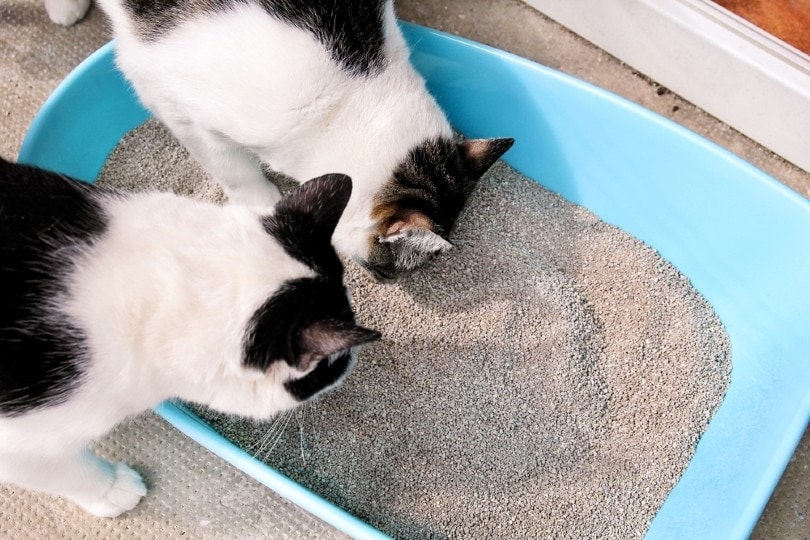
Dust Control
When using non-clumping clay or another type of litter, ensure that it contains very little dust. Once dust comes into contact with moisture, it’ll easily stick to your cat’s feet, and they will track it around your home. It can also contribute to respiratory problems for some cats. Look for a brand that advertises as low dust or 99% dust-free.
Odor Control
One of the biggest things that you’ll need to worry about, no matter what kind of litter you choose, is odor control. Some brands of litter contain odor-absorbing ingredients like activated charcoal or baking soda to help reduce bad smells. Litter that absorbs moisture quicker can also help manage odors.
Combating tough cat litter smells is an ongoing battle for pet parents but luckily, there are products out there designed to help! Two products that significantly reduce odors are the Hepper Litter Additive and the Hepper Enzyme Spray. Find out which is better suit to your needs with our breakdown of each product below.
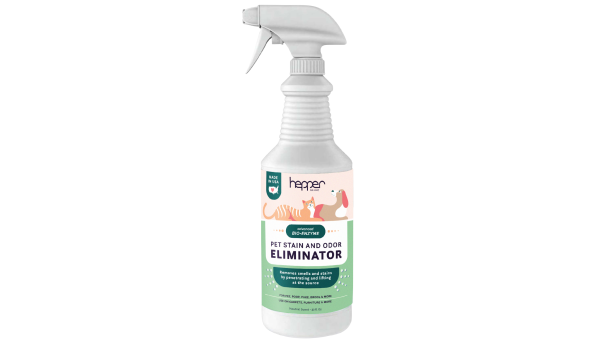
|
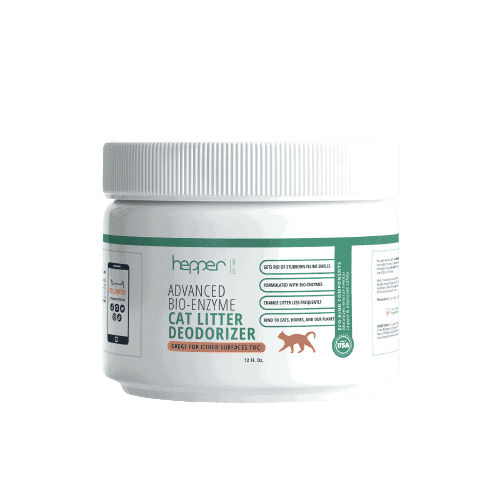 |
|
|---|---|---|
| Hepper Advanced Bio-Enzyme Pet Stain & Odor Eliminator Spray | Hepper Advanced Bio-Enzyme Cat Litter Deodorizer Powder | |
| Eliminates smells |
Eliminates smells:
|
Eliminates smells:
|
| Removes stains |
Removes stains:
|
Removes stains:
|
| Unscented |
Unscented:
|
Unscented:
|
| Light fresh scent |
Light fresh scent:
|
Light fresh scent:
|
| Works on multiple surfaces |
Works on multiple surfaces:
|
Works on multiple surfaces:
|
| Neutralizes odor within cat litter |
Neutralizes odor within cat litter:
|
Neutralizes odor within cat litter:
|
At Catster, we’ve admired Hepper for many years and decided to take a controlling ownership interest so that we could benefit from the outstanding designs of this cool cat company!
Conclusion
When choosing a non-tracking cat litter for your home among these reviews, we recommend our pick as the best overall. Fresh Step Clean Paws Multi-Cat Scented Clumping Clay Cat Litter is a clumping clay litter that traps moisture quickly, so your cat won’t track it around the house. It also has ammonia-block technology to reduce bacteria and is 99% dust-free. Another great option is our best value. Tidy Cats 24/7 Performance Scented Non-Clumping Clay Cat Litter is a low-dust litter that won’t stick to your pet’s feet, and it contains a gentle fragrance that will help mask odors without breaking the bank.
Featured Image Credit: jamesjoong, Shutterstock
Contents
- A Quick Comparison of Our Favorites in 2024
- The 7 Best Non-Tracking Cat Litters
- 1. Fresh Step Clean Paws Multi-Cat Scented Clumping Clay Cat Litter – Best Overall
- 2. Tidy Cats 24/7 Performance Scented Non-clumping Clay Cat Litter — Best Value
- 3. PetSafe ScoopFree Complete Disposable Non-clumping Crystal Litter Trays — Premium Choice
- 4. Fresh News Unscented Non-clumping Paper Cat Litter
- 5. PetSafe ScoopFree Premium Crystal Litter
- 6. Frisco Pine Pellet Unscented Non-clumping Wood Cat Litter
- 7. Naturally Fresh Pellet Unscented Non-clumping Walnut Cat Litter
- Buyer’s Guide: Finding the Best Non-Tracking Litter
- Conclusion













